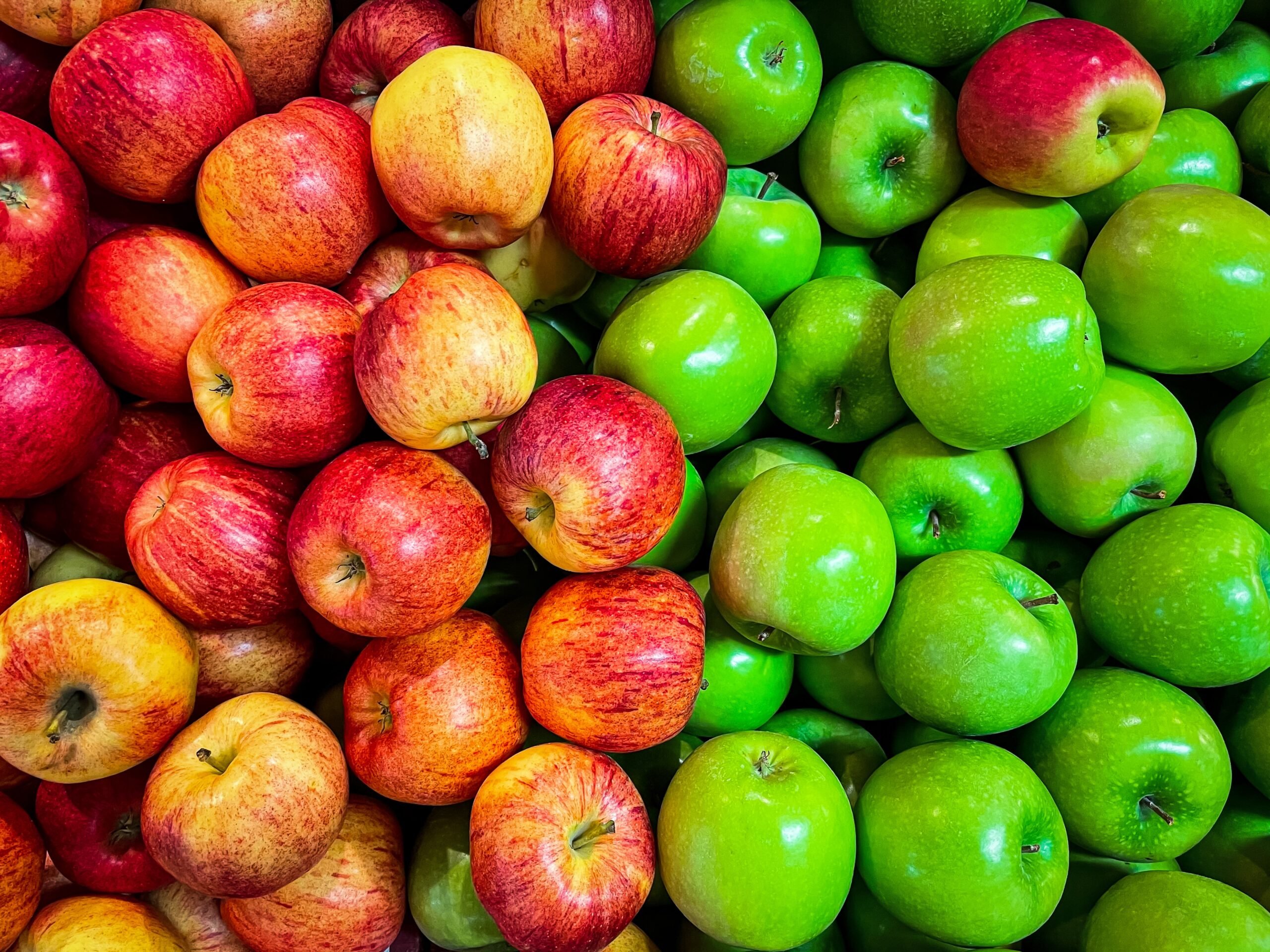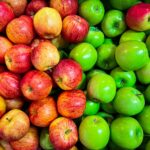
Original from Central Asia, apple trees (Malus domestica) are cultivated worldwide and were brought to North America by European settlers.
Apples are well-liked by children and adults not only for its sweet and aromatic flavor, but also because it gives the sensation of fullness and a low-calorie count, making it a favorite add up to a busy day.
Apples also have an interesting and significant place in religion and mythology and their many sizes, colors and flavors have made them a popular fruit.
Apples, have vitamin C, calcium, iron, potassium, and various antioxidants; they also have a high content of fiber and water. Although they are high in carbs and simple sugars such as fructose, sucrose, and glucose, they keep a low glycemic index (29 to 44). Studies have shown that an apple a day, really brings numerous benefits to your health.
Apples should be eaten with the skin, which is as rich in nutrients and fiber as its flesh and contains more flavonoid antioxidants than the fruit itself; also, eating it with the skin will help relieve constipation.
Apples are believed to:
- Aid with sleep disorders
- Fight free radicals responsible for cancer and diabetes
- Reduce the risk of heart disease
- Reduce obesity
- Reduce cholesterol
- Strengthen the lungs
- Strengthen the heart
- Strengthen the immune system
- Help reduce asthma attacks
- Increase Bone health
- Help weight loss
- Fortify the brain
- Aid gut health
- Improve neurological health
- Help delay dementia
- Help with memory loss
- Help reduce Cholesterol
- Reduce the risk of Trombotic strokes
- Help reduce Blood pressure
- Clean up the breath
Unfortunately, like many other fruits and vegetables, the risk of developing an allergy to apples exist due to its two proteins, one similar to the peach’s and another similar to the birch tree’s.
If you show the symptoms below, please contact your physician immediately. Please remember allergies are in many cases life threatening.
- Itchy throat
- Itchy mouth
- Swollen lips
- Swollen throat
- Stomach irritation
- Cramps
- Rash or hives
- Diarrhea
- Difficulty breathing
- Confusion
- Wheezing
- Low pulse
- Trouble swallowing
- Nausea
Apple seeds contain cyanide, swallowing one full seed does not present a risk, but chewing and swallowing them in large quantities could be dangerous.
Because of their consistency, there is a risk of choking with apples, be careful If you have difficulty swallowing or feed apple chunks to a child.
All fruits and vegetables must be washed before consumption.
Photography by: James Yarema and Michael Singer @ Unsplash







Recent Comments